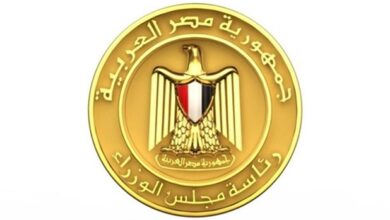Budgetary and Human Rights Observatory (BAHRO) criticized the media campaign which says that Egypt's economy is at stake and that Egypt is on the brink of starvation. It argued that the policies employed by the current finance ministry to run the economy are against the people’s will.
BAHRO mentioned in a statement released Thursday that the Ministry of Finance is managing the economy using a neo-liberalist approach adopted by the International Monetary Fund (IMF) and the World Bank. It supported this assertion by saying that the Ministry of Finance borrowed money before mobilizing domestic capital to its fullest potential.
The statement said that the campaign depends on reports and statements issued by the Ministry of Finance and echoed by a member of the country’s ruling military council.
According to the statement, the reports said that there is a deficit of 10 percent in the state budget, a reduction in cash reserves from US$36 billion to US$28 billion, a reduction of 60 percent in tourism income, and a rise in the poverty rate to 70 percent.
"The current government is not aware of the fact that these policies were among the key factors leading to the revolution, and that the majority of Egypt's poor demanded the wheels of production be directed toward the benefit of the majority, instead of to a few number of businessmen," the statement read.
The statement pointed out that the former regime argued that the poverty rate does not exceed 19 percent, whereas international reports estimated it at no less than 60 percent.
It added that budget deficits are a problem that many countries like Spain, Greece, England, France and US, the largest economy in the world, suffer from.
The statement denied allegations that labor strikes have stopped production, pointing out that laborers call for opening factories that were closed down by businessmen under the pretext of the global financial crisis.
In a related context, the statement stressed that it is unfair to accuse the protesters of harming tourism, noting that although the Ministry of Interior is responsible for security in the streets, the protesters were the ones to execute the function of police during the revolution.
The statement added, "Those who regret losing foreign investments must have forgotten that foreign investments enjoyed long term tax exemptions and did not add much to the Egyptian economy. On the contrary, they helped in looting the economy through suspicious privatization deals and manipulation of the stock exchange, which allowed unbelievable profits to be transferred abroad."
Translated from the Arabic Edition




